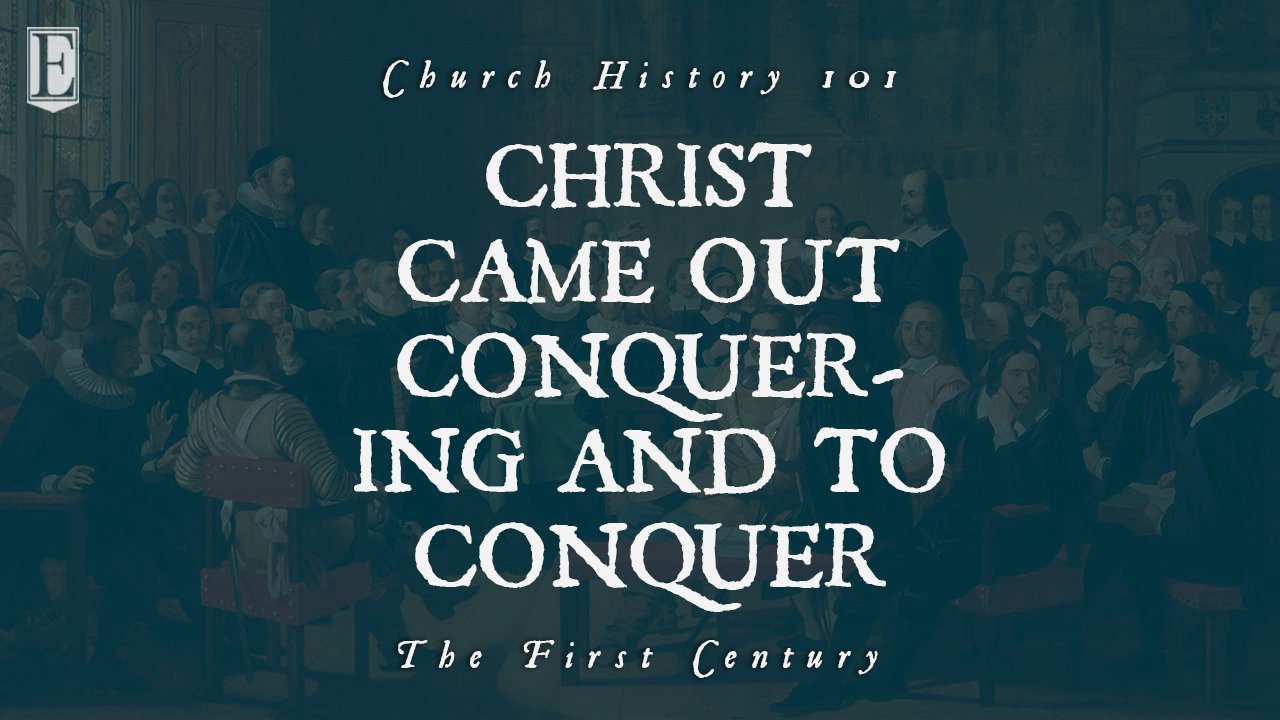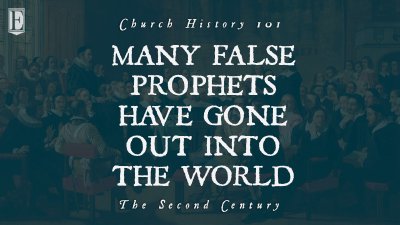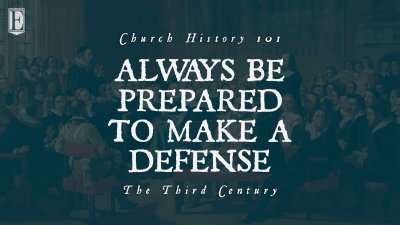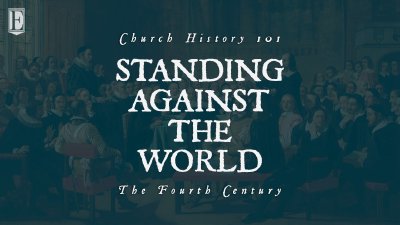First Century Memory Verse: “Christ came out conquering, and to conquer” (Revelation 6:2).
First Century Memory Quote: “The blood of the martyrs is the seed of the church” (Tertullian).
INTRODUCTION
QUESTION I. What is church history?
ANSWER. Church history is the story of how Jesus has built his church for his own glory and his peoples’ good.
Jesus said, “I will build my church, and the gates of hell shall not prevail against it” (Matthew 16:18).
QUESTION II. Why should we learn church history?
ANSWER I. We should learn church history because it is our Christian family history.
ANSWER II. We should also learn church history because God will use it to warn us away from sin.
ANSWER III. We should learn church history because God will use it to encourage us toward godliness.
ANSWER IV. We should learn church history because God will use it make us excited to do great things and suffer great things for Christ.
ANSWER V. We should learn church history because it is the story of Jesus conquering the nations through his Gospel.
“Now I watched when the Lamb opened one of the seven seals, and I heard one of the four living creatures say with a voice like thunder, “Come!” And I looked, and behold, a white horse! And its rider had a bow, and a crown was given to him, and he came out conquering, and to conquer” (Revelation 6:1-2). This is Christ, riding on his white horse, going forth conquering, and to conquer the nations through the preaching of the gospel.
I. THE FIRST CENTURY CAN BE SEPARATED INTO THREE PERIODS
I) In the first period of the first century, Jesus Christ came into the world as the God-man to preach, save, and conquer (A.D. 0-33).
Jesus said, “The Son of Man came to seek and to save the lost” (Luke 19:10). He also said, “[The kingdom of God] is like a grain of mustard seed, which, when sown on the ground, is the smallest of all the seeds on earth, yet when it is sown it grows up and becomes larger than all the garden plants” (Mark 4:31-32). Christ came to preach. Christ came to save. Christ came to conquer.
This period came to an end with the resurrection of Jesus, after his perfect life and wonderful death to save us from our sins.
II) In the second period of the first century, Jesus sent his apostles to preach the gospel and plant churches all over the world (A.D. 33-66).
Christ said to his apostles, “You will receive power when the Holy Spirit has come upon you, and you will be my witnesses in Jerusalem and in all Judea and Samaria, and to the end of the earth” (Acts 1:8). By the power of the Holy Spirit, the apostles went out to preach all over the known world. Churches were planted in Israel, Greece, Italy, Asia, Africa, and even India.
This period came to an end with the death of the apostles and the destruction of Jerusalem.
III) In the third period of the first century, Jesus preserved his people through great suffering (A.D. 66-100).
To the church in Smyrna, Jesus wrote a letter and said, “Do not fear what you are about to suffer. . . Be faithful unto death, and I will give you the crown of life” (Revelation 2:10). Saints will suffer for Christ. Saints will reign with Christ.
CONCLUSION: POLYCARP’S MARTYRDOM
Now let me tell you a story of a man named Polycarp who was born in the year 69 and was one of the Pastors of the church in Smyrna—the same church Jesus wrote that letter to and said, “Do not fear what you are about to suffer… be faithful unto death, and I will give you the crown of life.”
Polycarp was killed because he would not worship the Roman emperor. Christ is King, so Polycarp would not worship anyone but him.
He said, ”Eighty and six years I have served [Christ], and He has done me no wrong. How then can I blaspheme my King and Savior? You threaten me with a fire that burns for a season, and after a little while is quenched; but you are ignorant of the fire of everlasting punishment that is prepared for the wicked."
Before his death he prayed, "I bless you, Father, for judging me worthy of this hour, so that in the company of the martyrs I may share the cup of Christ." Polycarp was burned at the stake and pierced with a spear. What do you think happened to Polycarp as soon as he died? He was given the crown of life with Jesus in heaven.
The more they killed Christians the more the gospel spread and more people were saved! Tertullian, an early church historian, said, “The blood of the martyrs is the seed of the church.” He is right. Nothing can stop Jesus as he is riding his white horse because “Christ came out conquering and to conquer” (Revelation 6:2).

CHRIST CAME OUT CONQUERING AND TO CONQUER: The First Century
The First Century
August 4, 2022 • Brett Baggett • Matthew 16:18, Revelation 6:2, Revelation 2:10
More from
Church History 101







